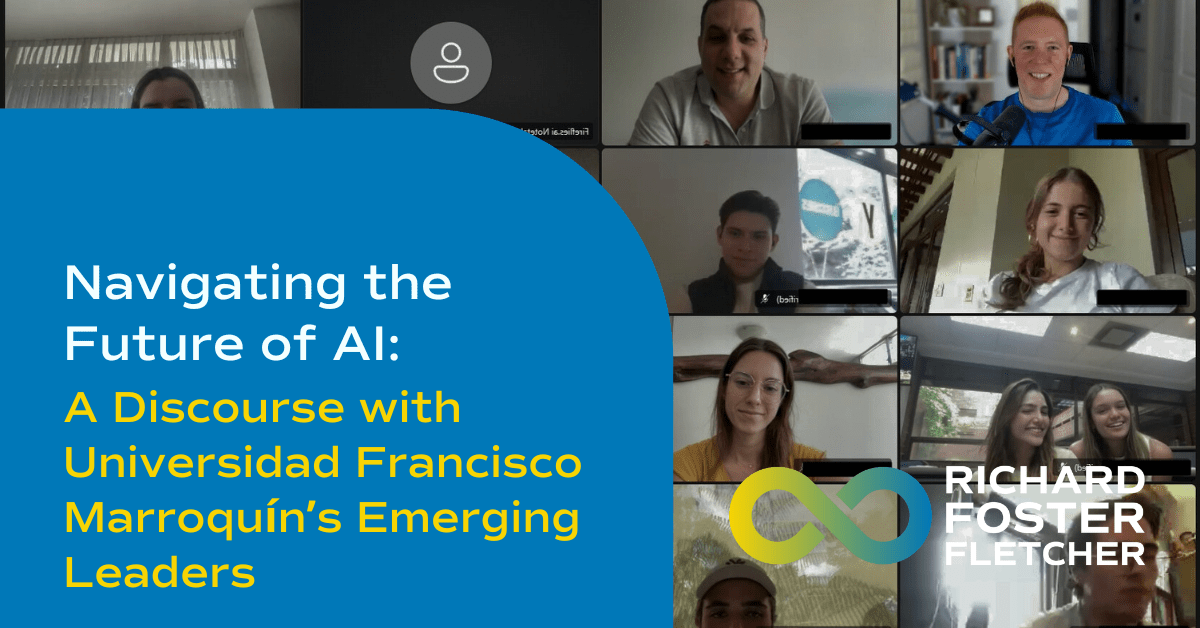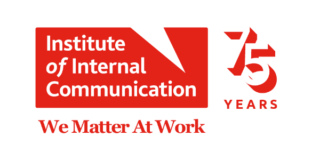
Navigating the Future of AI: A Discourse with Universidad Francisco Marroquín’s Emerging Leaders

Today, I had the distinct pleasure of engaging with the students at Universidad Francisco Marroquín (UFM) in Guatemala, a leading institution known for cultivating critical thinking and a deep respect for individual liberty. Our dialogue centred around artificial intelligence—its current trajectory, its potential to reshape industries, and the ethical dilemmas that accompany its rise. What unfolded was a conversation that not only highlighted the students’ intellectual rigour but also revealed their thoughtful approach to the challenges and opportunities presented by AI.
From the outset, it was clear that these students are acutely aware of the dual nature of AI. They recognised it as a tool of immense potential, capable of driving innovation, efficiency, and growth. Yet, they also voiced concerns about its capacity to disrupt traditional employment structures, particularly in roles that have historically required lower levels of formal education. This awareness led us to explore the broader implications of AI on the future workforce—a topic that remains at the forefront of global discussions on technology and the economy.
One of the most compelling aspects of our discussion was the students’ grasp of AI’s role in augmenting rather than replacing human capabilities. They questioned the prevailing narratives that simplistically categorise AI as either a job creator or a destroyer. Instead, they sought to understand how AI could enhance human work, creating new opportunities that demand a higher level of cognitive and creative skills. This perspective is critical as we consider the future of work: AI’s true potential lies not in replacing human labour wholesale, but in transforming it, requiring a more educated and adaptable workforce.
The conversation naturally progressed to the ethical considerations of AI, particularly its inherent biases. The students demonstrated a sophisticated understanding of how AI systems, trained on vast datasets, often reflect and perpetuate existing societal inequalities. They were particularly interested in the idea of AI as both a mirror and a magnifier of human biases—an observation that speaks to the complex relationship between technology and society. We discussed the necessity of embedding ethical considerations into the development of AI systems, ensuring that these technologies are designed and deployed in ways that promote fairness, transparency, and accountability.
In exploring the intersection of AI and education, the students raised critical questions about the future of learning in an AI-driven world. They were keenly aware that while AI can enhance educational experiences by personalising learning and automating administrative tasks, it also poses risks to the human elements of education—namely, creativity, critical thinking, and the development of soft skills. We examined how educators might leverage AI to complement, rather than supplant, these essential aspects of learning, thus preparing students not just to participate in, but to lead, the future workforce.
A particularly insightful moment arose when we discussed the role of purpose in the AI age. The students grasped the concept that, while AI can execute tasks with remarkable efficiency, it is the underlying human purpose—the reason behind our actions—that imbues these tasks with meaning. This understanding is crucial as we navigate a future where AI becomes increasingly integrated into our daily lives. The students recognised that the value of their work, whether facilitated by AI or not, would ultimately be judged by its purpose and impact.
Our discussion also touched on the geopolitical implications of AI. The students were astute in recognising that AI, as a global technology, has the potential to exacerbate existing inequalities between nations. They expressed concerns about ‘AI colonialism’—a scenario where the benefits of AI are disproportionately captured by a few technologically advanced nations, leaving others at a disadvantage. This led to a broader conversation about the need for inclusive AI development strategies that consider the diverse needs and contexts of different countries and communities.
As our session drew to a close, I was left with a profound sense of optimism. The students of UFM are not merely preparing to enter a workforce shaped by AI—they are positioning themselves to shape that very future. Their questions, reflections, and ideas demonstrated a level of engagement and foresight that is both rare and necessary in today’s rapidly evolving technological landscape.
My experience with the students at UFM reinforced the importance of dialogues like these in shaping the future of AI. These young leaders are not content to be passive recipients of technological change; they are eager to influence its direction, ensuring that AI develops in a way that is ethical, inclusive, and ultimately beneficial for all. As we continue to grapple with the profound implications of AI, it is voices like theirs that will be critical in guiding us towards a future where technology serves humanity, rather than the other way around.
















